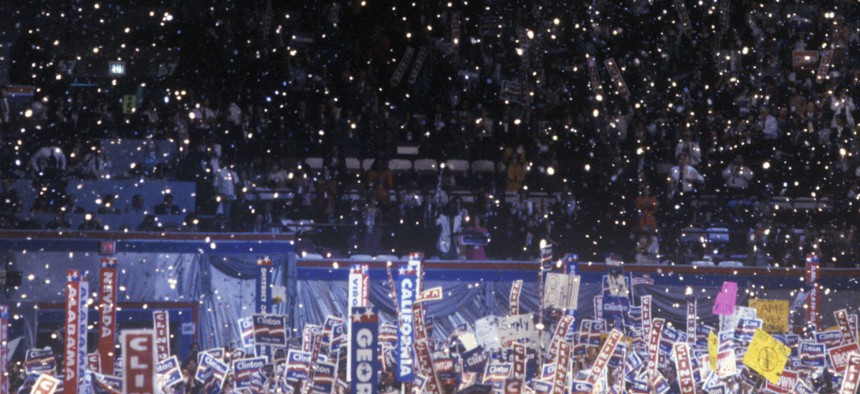
Joseph Sohm / Shutterstock.com
Ban on Contractor Campaign Gifts Is Constitutional, Says Circuit Court Panel
D.C. judges back FEC's rule aimed at preventing corruption.
A 75-year-old prohibition on campaign contributions by individual federal contractors was upheld on Tuesday by a three-judge panel of the District of Columbia Circuit, a ruling favoring the Federal Election Commission’s position over two contractors for the U.S. Agency for International Development.
In Wagner v. FEC, the appeals judges meeting en banc determined that the government has an interest in such a ban to “prevent corruption and the appearance thereof and, in so doing, to protect the integrity of the electoral system by ensuring that federal contracts were awarded based on merit.”
Plaintiffs Lawrence Brown and Jan Miller, longtime USAID employees who left and were hired back to write a report on science and regulation, wanted to exercise their free speech rights and give money to candidates, political parties and traditional political action committees in the 2012 elections. They cited the First Amendment, equal protection and due process.
Campaign finance reform advocates welcomed the judges’ upholding of the FEC ban—which Congress enacted in 1940 to address contracting scandals. “This is a major victory for democracy and we are pleased to see no dissent on the court in upholding this critical bulwark against corruption and the appearance of corruption in the awarding of government contracts,” said Tara Malloy, senior counsel at the Campaign Legal Center, which filed an amicus brief along with Public Citizen and Democracy 21. “Long-standing legal precedent and the long and dismal history of contracting scandals clearly support the law. Pay-to-play scandals are as old as the Republic, and this court has again recognized the vital public interest in preventing such abuses.”
The ban does not apply to corporations that give to political action committees, and open-government groups such as the Project on Government Oversight have urged President Obama to sign an executive order requiring contracting companies to disclose all campaign contributions.
At least one contractors group had a mixed reaction. The Professional Services Council “has followed this case carefully and is not surprised by the unanimous decision of the D.C Circuit,” Alan Chvotkin, the group’s executive vice president and counsel, said by email to Government Executive.
The statute “is very narrowly drawn and has a very limited impact on government contractors, notwithstanding that the court went to great lengths to raise concerns about the risk of corruption from direct campaign contributions,” he said. He added that all companies, not just federal contractors, are already prohibited from making campaign contributions directly to candidates or political parties.
“By the same token, PSC doesn’t see this court’s ruling as providing any ‘bootstrap’ for those who advocate to inappropriately impose unique reporting or other restrictions exclusively on government contractors or their officials," he said. "The Supreme Court has made this a clear distinction when balancing the authority of Congress to impose reasonable limitations on contributions with First Amendment rights to not impinge on other forms of political activity.”
(Image via Joseph Sohm / Shutterstock.com)
NEXT STORY: The 4 Keys to Building Rapport With Your Team







